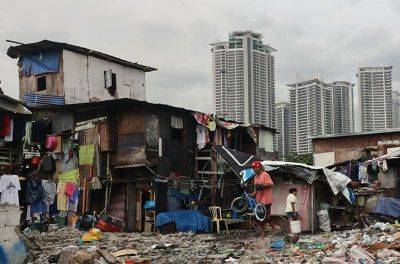‘Tourists have no power to transform Barcelona’: Is rage at digital nomads misdirected?
Anti-tourist activism has steadily built momentum in Spain this year. It’s ranged from large-scale protests in major cities like Madrid and Málaga, to more subtle actions like anti-tourist graffiti peppering Spain’s inner-cities and coffee shops banning digital nomads from hogging tables with their laptops.
In some places, however, things have taken a slightly more unsettling turn. In the southern city of Seville Airbnb lockboxes were recently allegedly covered in dog poo, and in Barcelona tourists were sprayed with water pistols and told to leave the city.
For digital nomads and remote workers wanting to make Spain home, this presents some food for thought.
“It's a diversion. Like they need to create an enemy for the problem,” says Ron, a Valencia-based digital nomad.
The 40-year-old recently moved from the Philippines with his wife Jane and their young daughter. He feels that aspects of the protests, while completely understandable, are misdirected.
“They don't want to direct it at the government,” he tells Euronews Travel, “so they direct it at someone who won't be able to do anything about it, direct it towards a tourist,” because they are easier targets.
Americans Nicole, 32, and Jasper, 30, recently spent a couple of months working from Barcelona. “The individual tourists themselves have no power to transform Barcelona into the city its residents wish for,” Nicole says.
Jasper adds that based on his experience in the Catalan capital, “It's clear that it's not only anti-tourist, it's anti-outsider. Which is xenophobic.”
Some digital nomads are conscious of the frustrations in Spanish society and trying to understand their place in it. Ukrainian national Alexander, 33, tells Euronews Travel that these sorts of uneasy undertones, while real, are incredibly rare. “I faced that only once,” he says. “When I wanted to print some documents at the copy centre, the seller was staring at me like a stranger with contempt.
“But I'm okay with that because I speak Spanish really badly,” he adds. “And this is my fault, not a problem of Spaniards.”
Online, some report unease at speaking English or their native tongue in public. “We were definitely conscious of speaking






